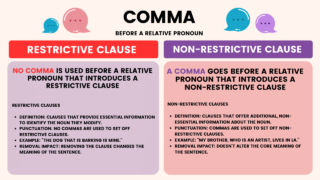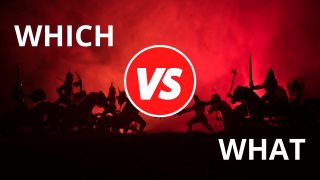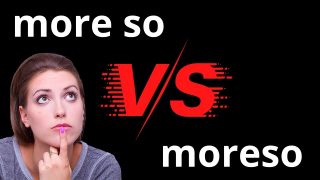“Especially” appears quite a lot in texts, and a comma sometimes appears before it, but other times doesn’t. Why is this so? Are there rules that guide the pre-comma placement? If you’ve reached this site because of these queries sitting apprehensively at the back of your head, you certainly came to the right place. …
Search results for: unnecessary
“I know what pronouns are, but I’m kinda confused about the idea behind relative pronouns and I have no clue on how to punctuate sentences containing relative pronouns. If that’s totally you, you’ve certainly come to the right place. But don’t worry, Linguaholic got you covered! You’re welcome. You can thank me later for writing this …
Making a choice between two closely-related words can be sometimes tricky, not to mention taxing. Although it feels quite uncanny to get confused about a language that we seem to know by heart, linguistic doubts are indeed natural. So, why don’t we take a closer look between “which” and “what” to find out the nuances …
Which is a better choice, “more so” or “moreso”? Is the latter variant incorrect? For some reason, humans break the “rules” to achieve some sense of language convenience. This has been the case with “moreso,” the non-standard variant of “more so” which is used to either intensify or recall ideas in sentences. Now, without much …
English Grammar can be a tricky subject, tripping up even the best of us. It requires plenty of study and understanding. But, once you get the hang of things, your words start flowing much more naturally, and you start making fewer and fewer mistakes. One expression that can easily confound beginners to English is “in …
Having the ability to use punctuation marks with ease, and perhaps without consulting Dr. Google, entails advanced linguistic literacy. Being able to appropriately employ words that are commonly misused and misinterpreted suggests the same idea. Since these two areas are two of the most crucial parts in language application, it is essential to discuss them …
Have you ever wondered why and how on earth can a word be flanked with its identical twin in a sentence? If you’ve questioned whether or not this type of phrasal construction is grammatically-correct, then you must be a grammar stickler! Kidding aside, if you’ve landed on this post searching for some answers, then that …
Human thought is sometimes represented by expressions that are obscure and vague. The attempt to use precise and accurate language in texts, especially in technical documents, may reinforce some counterproductive effects. One way to address the uncertainty in the written language is by adding non-lexical symbols, such as commas, to assist in the disambiguation process. …
Humans are rational beings in general, thereby entailing the consideration for truth value evaluations in utterances. To express these observations, we use words either to judge the content of statements, or to attach our own mood or emotion towards them. These words are linguistically known as disjuncts or disjunctive adverbials which are essential in adding …









